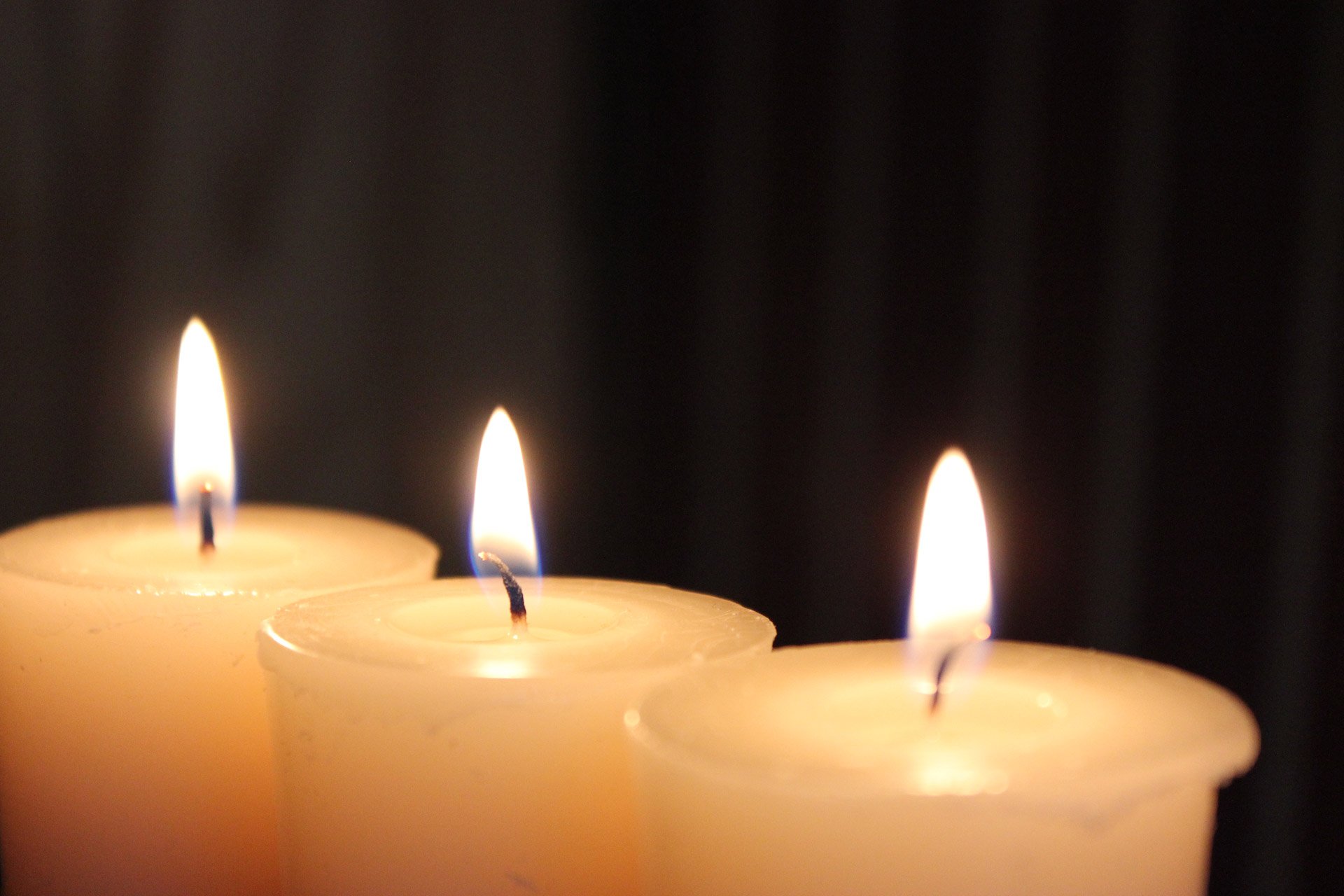Easier Said than Done
On our refrigerator is a handwritten note penned by my wife’s mother sometime around 1995. It is from Philippians 4:6-7. (If you happen to belong to a congregation that uses the common lectionary, it is one of the lessons for the coming 3rd Sunday in Advent, as well as Luke 3 with John ranting in the wilderness.) She wrote it down as a reminder as she fought lymphoma, a battle she would lose. In 2018, my wife found it in the dog-eared pages of her mother’s hand-me-down Bible and gave it to me when I was diagnosed with leukemia. Last year we would photocopy it and gave the original to our son when he was diagnosed with lymphoma.
Seriously?
Do not worry about anything. Seriously? Paul never had to live the life of a cancer patient, where your life falls into a rhythm of tests and waiting for results. You live knowing there is a terrorist in your body. Even when treatments send the terrorist into remission, there is always the possibility the terrorist can resurface. I know.
But beyond worries specific to cancer patients and their families, the admonition to “not worry about anything” is certainly easier said than done. Yet, Jesus often said those words, notably in his Sermon on the Mount (see Matthew 5:25-34) while also asking, “Why do you worry?” Is Jesus asking us not to worry about the implications of climate change? To not worry about gun violence and school shootings in this country? To not worry about losing our democracy, and voting rights, and the new COVID-19 Omicron Variant? To not be anxious when your teenager is beginning to make poor choices or when you get a new boss, and the company is making momentous changes? Seriously?
Why do we worry? When I was in the tenth grade, I was totally unprepared for a pop quiz in my English class. Thinking that the teacher would find it funny, I drew a picture of Alfred E. Neuman and wrote, “What me worry?” on my paper and turned it in. (Yea, I know, some of you don’t know about Mad Magazine.) The teacher was not amused. He sent me to the dean’s office. Then, I really began to worry. What if they tell my parents?
Do not Worry Does Not Mean Do Not Care
That Paul writes from prison and Jesus repeatedly says, “Do not worry or be anxious about anything” is not the same as saying, “Do not care.” Followers of Jesus are called to deeply care about the things that bring an ache to God’s heart, even if it means doing what the late Congressman John Lewis said about getting into “good trouble.” And what John the Baptist ranting out in the wilderness, “You brood of vipers” (Luke 3:7), is saying is that you may be quite religious, but not caring about the poor and the marginalized will get you in hot water. You should know and act better. Little wonder that Jesus’ ire was often directed at religious folks, whom he called hypocrites.
Standing Secure
But worry and anxiety? At the heart of the repeated admonishments to not worry is the call to trust. It is a call to faith not in a belief or religious system but in the One who created you and all that exists. Trust or faith is a stance. It is to stand tall and secure in the unshakeable hope that God’s got you, no matter what.
If you pay attention to that which most frustrates Jesus, it is not what folks imagine when they hear the religious term, sin. It is not acts of immorality or even some awful crimes. It is more fundamental. It is the failure to trust God with all that we are and all that we have. Jesus’ life and ministry and what it showed he deeply cared about, his humble journey to his cross and death by crucifixion, and his victory over death and the grave are all screaming at us with the fundamental God question, “Do you trust me? Will you please trust me?”
God’s got us. Because God has the last word on whatever we might face, instead of hanging onto anxiety, how about with prayer and supplication we let our requests be known to the God who loves us and has us? When something triggers worry or anxiety, will you hear God speaking to you, “Will you trust me?” Will you? Because God’s got you.
In the abiding hope of the empty tomb,




